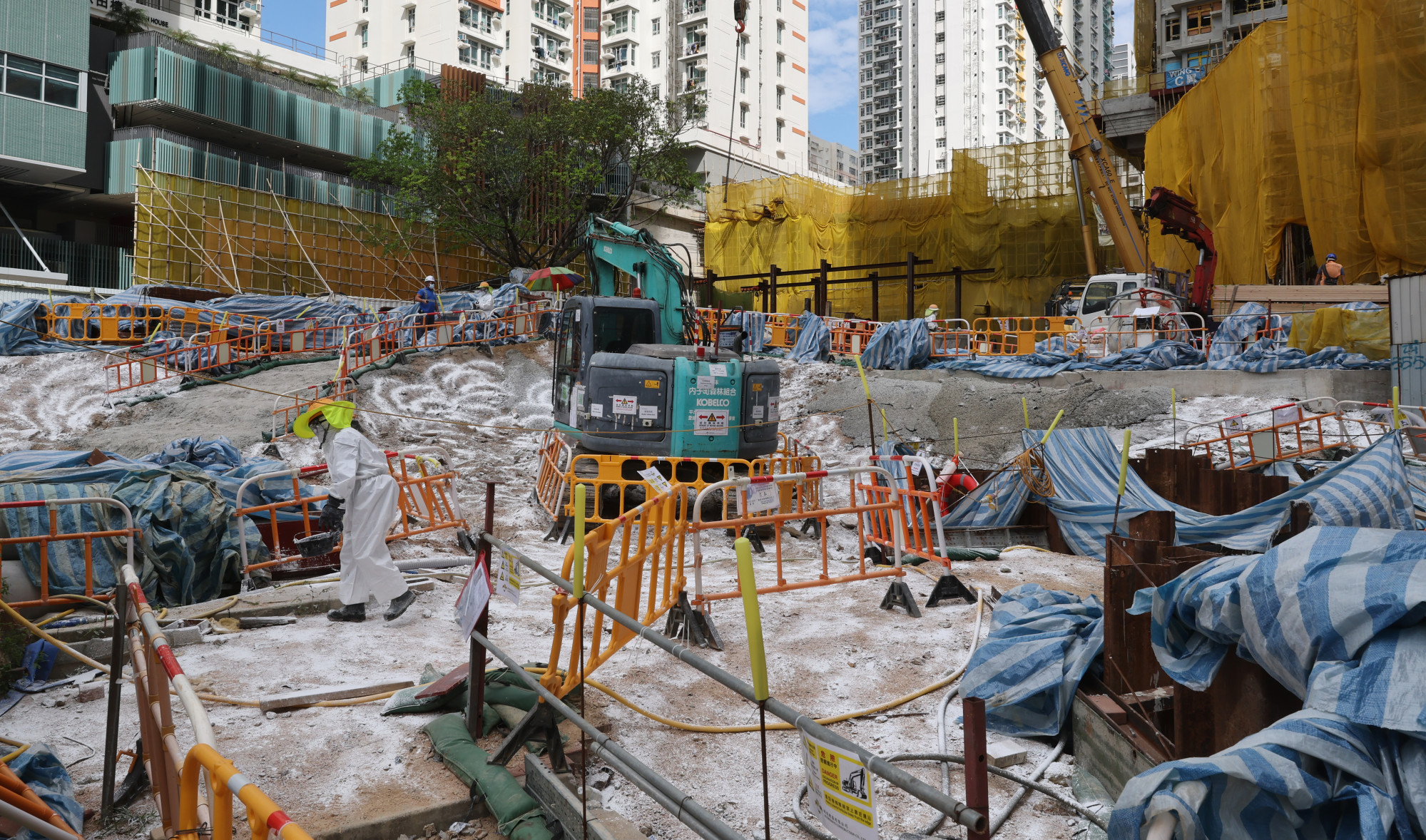
10 Hong Kong construction workers test positive for bacterium that causes melioidosis
- Health authorities revealed last week four soil samples from building site at Pak Tin Estate in Sham Shui Po contained bacterium
- Among the 34 cases of melioidosis recorded in city this year, 23 found in Sham Shui Po district, and seven eventually died of disease
Ten asymptomatic workers from a contaminated construction site in Hong Kong have tested positive for a bacterium that can cause a severe infectious disease known as melioidosis, health authorities revealed on Saturday.
The Centre for Health Protection said the workers, aged 39 to 66, tested positive for antibodies of the bacterium Burkholderia pseudomallei after a serology test.
Melioidosis is usually spread through contact with contaminated soil or water. Symptoms include fever, headache and localised pain or swelling, but in severe cases infections can lead to pneumonia and sepsis, an extreme response to infections where the immune system starts to attack healthy tissue.

Among the 34 cases of melioidosis recorded in the city so far this year, 23 were detected in Sham Shui Po district, and seven eventually died of the disease.
Health authorities earlier this week announced a plan to make melioidosis a statutory notifiable disease, meaning doctors would be required to report cases to officials.
The infected workers would be sent to hospital for treatment, the centre said, adding it was believed they had contracted the disease via contaminated soil or water.
Tests on eight other workers came back negative, while screening of another eight provided inconclusive results and they would be checked again in two weeks, it added.
Last Friday, health authorities revealed that four soil samples from the building site at Pak Tin Estate in Sham Shui Po contained the bacterium, but the centre’s Dr Chuang Shuk-kwan assured the public that none of the cases known at the time had worked, entered or walked near the area.
Melioidosis should be made notifiable to Hong Kong authorities, experts say
The administration said earlier this week it had increased chlorine levels at a major water treatment facility to kill germs that might have caused the mysterious outbreak.
Medical experts said the positive results only proved the workers had been exposed to the bacterium, adding they showed no symptoms of the disease. But further investigation would be needed to ascertain whether the construction site was the origin of the bacteria, they added.
Respiratory disease specialist Dr Leung Chi-chiu said he believed that contamination at the building site was severe given that 38 per cent of the workers tested were found to be infected.
“If workers at the site had such high exposure to the bacterium, it could not be excluded that residents of the public housing estate nearby were also heavily exposed,” he said. “The government should consider testing high-risk residents with a serology test to observe the rate of infection.”
Hong Kong logs spate of melioidosis cases, but experts urge public not to panic
He agreed the 10 asymptomatic workers were unlikely to develop symptoms, unless they were severely immunocompromised.
Infectious diseases expert Dr Wilson Lam said the latest testing was a part of the government’s effort to ascertain the role the contaminated site played in the current melioidosis outbreak in the area.
“We now know that this site has an important role in this outbreak, but we still don’t know if it is the origin or an infected site,” Lam said. “The bacterium could have come from water upstream or somewhere else if the soil was transported to the site.”

